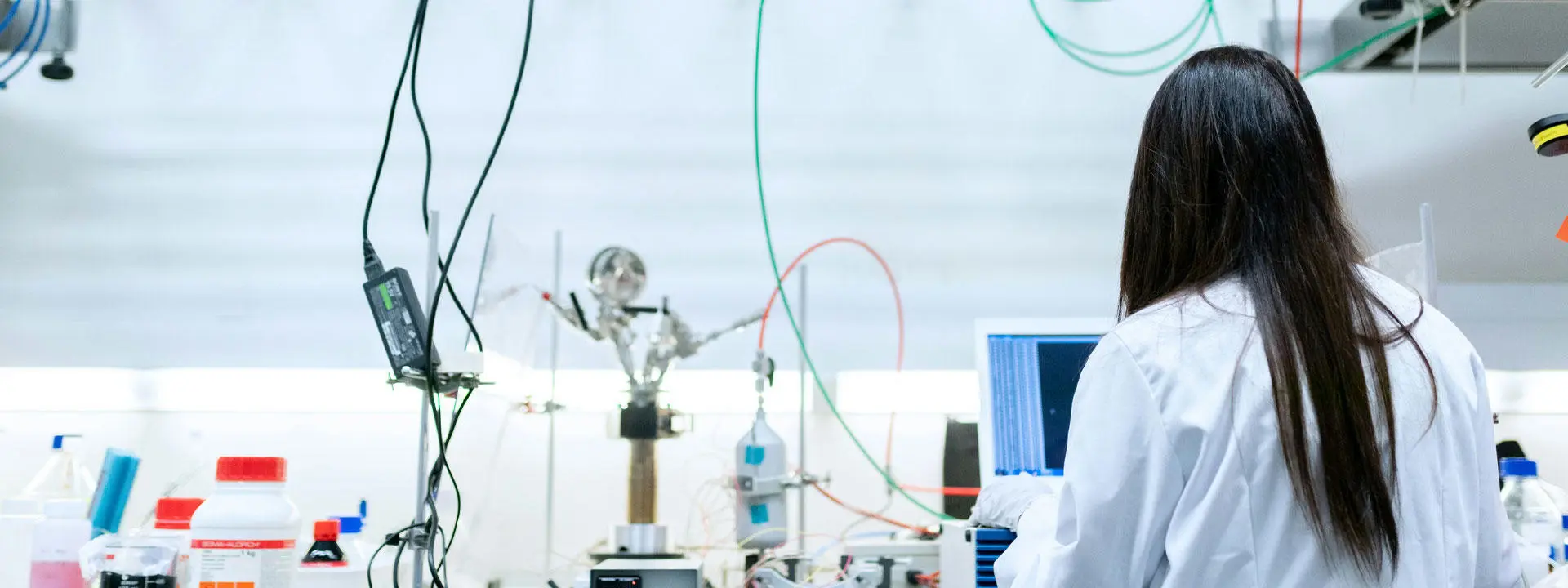STEM inclusivity champions: Farnaz Mohsenpour

Continuing our 'STEM inclusivity champions' series, we ask Heriot-Watt alumni who are role models for underrepresented groups in STEM to share their journey, achievements, and advice, as inspiration to others in the STEM community.
In this instalment we hear from Dr Farnaz Mohsenpour, Assistant Executive Dean for EDI for the School of Engineering & Physical Sciences.

From Tehran to Edinburgh: Reflections on My Career Journey
This is the first time I’m writing a blog, but when I was asked to contribute to STEM Inclusivity, I couldn’t have been more excited. The journey that brought me here, both professionally and personally, has been one of self-discovery, resilience, and transformation. Recently, I wrote a reflective narrative for an application of Advanced Higher Education. Writing the reflective narrative became an invaluable exercise, encouraging me to look deeper at my academic career and teaching philosophy. It allowed me to pause and think deeper of where I started, how far I’ve come, and where I want to go next.
Looking Back: A Path of Learning and Growth
My journey began in Tehran, where I earned my BEng in Chemical Engineering. A year working in a soft drink factory in Tehran gave me hands-on industry experience, but I was eager to expand my knowledge. Pursuing a postgraduate degree was the next logical step, and in 2009, I arrived in Edinburgh for my MSc at Heriot-Watt University. From the moment I landed, life presented me with challenges that demanded big decisions, but my passion for research kept me moving forward. I was beyond excited when I received a scholarship to pursue a PhD in a field I loved.
Research can be frustrating at times, but I was fascinated by the discoveries along the way. When the time to write my thesis came, I realised it wasn’t as daunting as many had warned. It was a result of my intellectual curiosity and dedication. However, the real crossroads came after my PhD. I had two offers: a university teaching position and a research role at a startup company. It was a difficult choice; did I follow my dream of becoming an academic or dive deeper into independent research? Ultimately, I chose academia and joined the Chemical Engineering department in 2014, marking the start of a career that shaped me in unexpected ways.
Balancing Academia and Personal Life
The early years of my academic career were intertwined with two maternity leaves, in 2016 and 2019. Navigating academia while raising two small children, without nearby family support, was incredibly challenging. There were moments when balancing work and personal life felt impossible, and my mental well-being took a hit. Looking back, I tell myself to be proud. I survived the struggles and emerged stronger. A turning point came after my second maternity leave when I actively sought support from postpartum counselling services and made a structured return-to-work plan. I was transparent with my head of discipline, ensuring they understood my need for time to get back to where I had left off things. During this period, I took on various roles, from Admissions Tutor to organising open days, all while finding a new passion, outreach activities. Joining the Women’s Engineering Society and running science festival events while heavily pregnant remains one of my most cherished memories. Demonstrating experiments for young children brought a sense of purpose and fulfilment that I hadn’t expected.
Advocating Equity, Diversity, and Inclusion (EDI)
As an Iranian woman, advocacy for gender equality has always been close to my heart. So naturally, joining the Women’s Engineering Society and the Athena Swan committee empowered me to drive initiatives that improve gender equity in STEM. A pivotal moment in my leadership journey was my participation in the Aurora programme, a leadership initiative by Advance HE aimed at preparing women for leadership roles.
Through Aurora, I was matched with a mentor, a dear colleague whose guidance and support transformed my perspective on leadership and teaching strategies. Our mentor-mentee relationship grew into a valuable exchange of experiences, helping me refine my approach to pedagogy and strategic planning. With my newfound confidence, I took on leadership positions, first as Deputy Head of Discipline and Director of Studies for first-year undergraduate students. In 2023, I then became the Global Head of Discipline, managing a team of academics across multiple campuses. Chairing boards and making critical decisions taught me the importance of judgment, experience, and understanding university regulations.
The past three years have been defining moments in my career. Under my leadership, our discipline ranked first in the UK for National Student Survey results, I won teaching awards nominated by students, and I saw the direct impact of equality, diversity, and inclusion strategies in action. Today, I hold a role I’m truly passionate about, Assistant Executive Dean of EDI, where I oversee my school’s EDI action plans and strategies.
Moving Forward with Purpose
I firmly believe that continuous reflection on EDI principles strengthens the foundation of inclusive engineering practices. STEM education must remain a transformative force, not only for individual career success but for broader societal impact.
Beyond academia, I stay connected with my artistic side. Painting has been my lifelong hobby, a source of joy and creativity that keeps me grounded. I recently submitted an art proposal for a sustainability public engagement contest. Because expression, whether scientific or artistic, is a powerful tool for change.
The struggles, the successes, the moments of doubt, all of these have brought me to where I am today. As I move forward, I carry with me the lessons learned, the people who supported me, and the unwavering belief that inclusivity in STEM isn’t just a goal, it is a necessity.